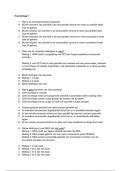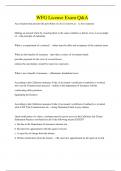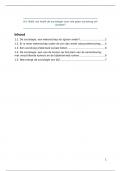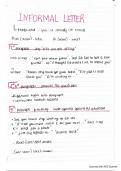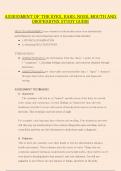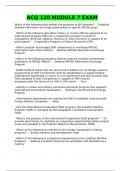Factors Influencing Workplace Stress
Stress is how we react when we feel under pressure or threatened. It usually happens
when we are in a situation that we don't feel we can manage or control.The primary
Workplace factors are work overload, reflecting the excessive workload or mentally/emotionally
demanding nature of the job, and control, indicating the level of influence employees
have over the pace, nature, and conditions of their work.
Stress Karasek:Job demands-control model
Robert Karasek's (1979) job demands-control model of workplace stress
connects two major stressors. According to the model, demanding job
factors like work overload can result in poor health, dissatisfaction, and
absenteeism. The impact is influenced by the level of control the
employee has over their work. In instances where two individuals have
equally demanding jobs, the one lacking control is more likely to
experience negative effects. Job control serves as a buffer against the
adverse impacts of job demands.
Procedure: Johannson et al. (1978) :Work Overload
Gunn Johansson et al. (1978) conducted a natural experiment comparing two groups of workers in a Swedish sawmill.
Group 1: Wood finishers (14 individuals) had a repetitive job preparing timber, with little control as the work was machine-set. The job was
complex, skilled, and carried significant responsibility, affecting the wages of other production line workers.
Group 2: Cleaners had more control, greater flexibility, more interpersonal contact, and less responsibility.
Measurements:
Researchers assessed employee illness and absenteeism using personnel records.
Stress hormone levels (adrenaline and noradrenaline) were measured in urine samples, taken before leaving home in the morning and three
times during the workday.
Findings:
The finishers group exhibited higher overall stress hormone levels.
Initial hormone samples each day indicated higher levels in finishers than cleaners, even before starting work.
Finishers' hormone levels increased over the day, while cleaners' levels decreased.
Finishers experienced more stress-related illnesses, and absenteeism was higher.
Marmot (1997) : Control
Procedure:
Marmot (1997) conducted the Whitehall I study with over 10,000 London civil servants since 1985.
Initial assessments involved participants completing questionnaires on workload, social support, and job control.
After 11 years, the study assessed the risk of developing Coronary Heart Disease (CHD) as a measure of stress effects.
Measurements:
Participants' workload, social support, and job control were assessed through questionnaires.
The study focused on differentiating between higher-grade jobs (e.g., accountants) and lower-grade jobs (e.g., administrative staff) to understand the impact of factors like
control and workload.
Findings:
Workload was not found to be linked to CHD risk.
Low job control was a significant factor.
Employees with low job control were three times more likely to have heart attacks compared to those with high job control.
Low job control was also associated with increased risks of other health issues such as strokes and cancers.
Conclusion:
The study emphasizes the crucial role of high job control in reducing the risks and costs associated with work-related stress disorders, underscoring its desirability for overall
well-being.
Stress is how we react when we feel under pressure or threatened. It usually happens
when we are in a situation that we don't feel we can manage or control.The primary
Workplace factors are work overload, reflecting the excessive workload or mentally/emotionally
demanding nature of the job, and control, indicating the level of influence employees
have over the pace, nature, and conditions of their work.
Stress Karasek:Job demands-control model
Robert Karasek's (1979) job demands-control model of workplace stress
connects two major stressors. According to the model, demanding job
factors like work overload can result in poor health, dissatisfaction, and
absenteeism. The impact is influenced by the level of control the
employee has over their work. In instances where two individuals have
equally demanding jobs, the one lacking control is more likely to
experience negative effects. Job control serves as a buffer against the
adverse impacts of job demands.
Procedure: Johannson et al. (1978) :Work Overload
Gunn Johansson et al. (1978) conducted a natural experiment comparing two groups of workers in a Swedish sawmill.
Group 1: Wood finishers (14 individuals) had a repetitive job preparing timber, with little control as the work was machine-set. The job was
complex, skilled, and carried significant responsibility, affecting the wages of other production line workers.
Group 2: Cleaners had more control, greater flexibility, more interpersonal contact, and less responsibility.
Measurements:
Researchers assessed employee illness and absenteeism using personnel records.
Stress hormone levels (adrenaline and noradrenaline) were measured in urine samples, taken before leaving home in the morning and three
times during the workday.
Findings:
The finishers group exhibited higher overall stress hormone levels.
Initial hormone samples each day indicated higher levels in finishers than cleaners, even before starting work.
Finishers' hormone levels increased over the day, while cleaners' levels decreased.
Finishers experienced more stress-related illnesses, and absenteeism was higher.
Marmot (1997) : Control
Procedure:
Marmot (1997) conducted the Whitehall I study with over 10,000 London civil servants since 1985.
Initial assessments involved participants completing questionnaires on workload, social support, and job control.
After 11 years, the study assessed the risk of developing Coronary Heart Disease (CHD) as a measure of stress effects.
Measurements:
Participants' workload, social support, and job control were assessed through questionnaires.
The study focused on differentiating between higher-grade jobs (e.g., accountants) and lower-grade jobs (e.g., administrative staff) to understand the impact of factors like
control and workload.
Findings:
Workload was not found to be linked to CHD risk.
Low job control was a significant factor.
Employees with low job control were three times more likely to have heart attacks compared to those with high job control.
Low job control was also associated with increased risks of other health issues such as strokes and cancers.
Conclusion:
The study emphasizes the crucial role of high job control in reducing the risks and costs associated with work-related stress disorders, underscoring its desirability for overall
well-being.

